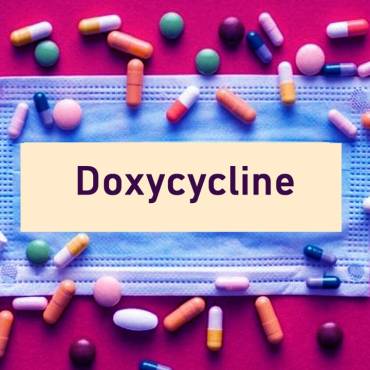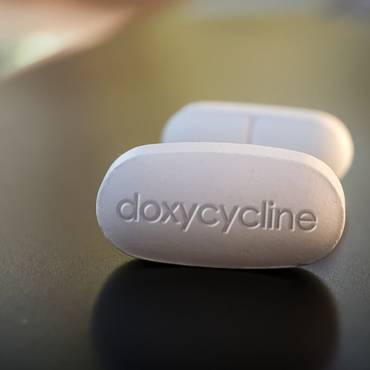Antibiotics are also called antibacterials. They are lifesaving medications for people with certain serious infections. Read below to learn everything about antibiotics, like how do antibiotics work? How long does it take for antibiotics to work, and can you drink alcohol on antibiotics? Resistance, and much more.
What Is An Antibiotic?
They fight bacterial infections, making it difficult for the bacteria to grow and multiply. Bacteria are the germs that live in the environment and inside and outside our bodies. Most bacteria do not cause any harm and are even helpful to humans, but some cause bacterial infections like strep throat. What do antibiotics do? When bacteria infect an organ, antibiotics usually help. Antibiotics are particularly effective in treating various types of infections:
- Dental infections
- Some ear and sinus infections
- Strep throat
- Skin infections
- Meningitis (swelling of the brain and spinal cord)
- Whooping cough
- Bladder and kidney infections
- Bacterial pneumonia
- Clostridioides difficle
It is important to note that only bacterial infections can be treated with antibiotics. Viral infections caused by the common cold, flu, bronchitis infection, coughs, sore throat, and stomach flu can’t be treated with antibiotics. You may need antiviral medications to help you get rid of them. It’s not always clear whether an infection is bacterial or viral. Sometimes, your doctor may need to decide which treatment is appropriate for your illness. Some antibiotic drugs work on many different kinds of bacteria and are termed broad spectrum. Other target-specific bacteria are known as the narrow spectrum. How do Antibiotics Work? As mentioned above, antibiotics treat bacterial infections; they kill bacteria or slow down the growth of bacteria. Now the question arises how do antibiotics work? They do this by attacking the wall of bacteria, interfering with bacteria reproduction, or blocking protein production in bacteria. How Long Does it Take for Antibiotics to Work? So how quickly do you get better after taking an antibiotic? How long does it take for antibiotics to work? An antibiotic drug begins to work after you take it. However, your symptom might not improve for 2 to 3 days. Most antibiotics should be used for 1 to 2 weeks. In some cases, shorter treatment may work well. Talk to your doctor; they will decide the best length of treatment and correct antibiotic treatment for you. The Side Effects of Antibiotics Antibiotics can be used anytime, and like any other medicine, they can cause side effects since your gut is full of good and bad bacteria. Antibiotics often affect your digestive system while they are treating a bacterial infection. Common side effects are nausea, vomiting, diarrhea, loss of appetite, abdominal pain, bloating, or indigestion. Rarely you may have experienced other symptoms like the following:
- Coughing
- Hives, a raised itchy skin rash
- Wheezing
- Tight throat or trouble breathing
These symptoms could indicate an allergic reaction to your antibiotics, so let your doctor know immediately if you develop any of these symptoms. If you are taking oral contraceptives, antibiotics may affect their action, so it is important to speak to your doctor about alternative birth control methods that might be appropriate for you. Women can develop vaginal yeast infections while taking antibiotics. The symptoms of a vaginal yeast infection include itching, burning sensation, vaginal discharge and pain during intercourse. Such type of infection must be treated with an antifungal cream. Do antibiotics make you tired? Well, yes, if you are taking a prescription antibiotic, then you may feel tired. But do not panic, as this may be a symptom of the infection being treated with antibiotics. Tiredness may be a rare side effect of the antibiotic. Moreover, it is best to avoid alcohol while taking an antibiotic. It is unlikely that moderate alcohol consumption cause problems. Talk to your doctor for more information. Why is it Important to Take Antibiotics Only When Needed? Antibiotics treat a wide range of infections and have saved countless lives. However, anytime antibiotics are used, they can cause adverse effects and lead to antibiotic resistance, which is one of the current biggest threats to public health. When there is a need for an antibiotic, the benefits usually outweigh the risks of side effects or antibiotic resistance. However, using too many antibiotics and misuse poses a threat to the usefulness of these important drugs. This is why it is important to use antibiotics only when we need them to protect our organs from harmful bacteria and avoid unnecessary antibiotic use to combat antibiotic resistance. Unnecessary use of antibiotics happens when an individual has been prescribed antibiotics when they are not needed, such as for cold and flu. Unnecessary use may also happen when the antibiotic is prescribed for infections that are sometimes caused by bacteria that do not require antibiotic treatment, like most sinus and ear infections. Note- Antibiotics should not always be used when you are sick. Ensure you use them only when needed to protect yourself from harmful infections. This helps to avoid unnecessary use of antibiotics and combat antibiotic resistance. What is a Misuse of Antibiotics? Misuse happens when an individual has been prescribed the wrong antibiotic, dose, or antibiotic for the wrong length of time. You should always talk to your doctor about the best treatment for your illness. See Your Doctor The best way to help slow the spread of bacteria is by smartly using antibiotics. Here’s how:
- Follow your doctor’s advice when they say you don’t need an antibiotic
- Do not use antibiotics for viral infections
- Only take them once your doctor jas prescribed them.
- Avoid skipping doses
- Take them as directed
- Do not exceed the recommended dose or the length of treatment
- Please do not keep them for future use
Conclusion
Antibiotics are medicines that fight bacterial infections in humans and animals. They successfully alleviate bacterial infection by killing the bacteria or making it hard for the bacteria to grow or multiply. Buy antibiotics online at the lowest prices. When using antibiotics, you must use them responsibly. Don’t save them for later use. Always follow your doctor’s directions carefully. Finding the treatment even if you feel better.



